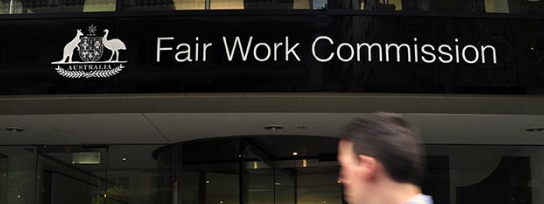The decision will see that the national minimum wage will increase from $23.23 per hour to $24.10 per hour, meaning workers will earn $915.31 instead of $882.80 on a 38-hour working week.
Around 2.6 million workers will be affected by the changes — equivalent to a quarter of Australia’s workforce.
“The increase of 3.75 per cent which we have determined is broadly in line with forecast wages growth across the economy in 2024 and will make only a modest contribution to the total amount of wages growth in 2024,” the commission said.
“We consider therefore that this increase is consistent with the forecast return of the inflation rate to below 3 per cent in 2025.”
The FWC said they took into consideration the cost-of-living pressures when making their decision.
“A primary consideration has been the cost-of-living pressures that modern award-reliant employees — particularly those who are low-paid and live in low-income households — continue to experience,” the commission panel stated.
“It is not appropriate at this time to increase award wages by any amount significantly above the inflation rate, principally because labour productivity is no higher than it was four years ago and productivity growth has only recently returned to positive territory.”
Last year, the national minimum wage increased by 8.65 per cent and saw a 5.75 per cent increase for awards.
Ahead of the FWC’s decision, the Australian Council of Trade Unions argued for 5 per cent increase, the Australian Industry Group called 2.8 per cent, and the Australian Chamber of Commerce and Industry suggested 2 per cent.
“We have taken into account that the labour market and business profit growth overall remain strong, but the picture is less positive in some of the industry sectors which contain a large proportion of modern-award-reliant employees,” the commission continued.
“We have also taken into account that modern-award-reliant employees will shortly receive the benefit of the stage 3 tax cuts and the budget cost-of-living measures, which are projected to increase real household disposable incomes over the next 12 months.”






